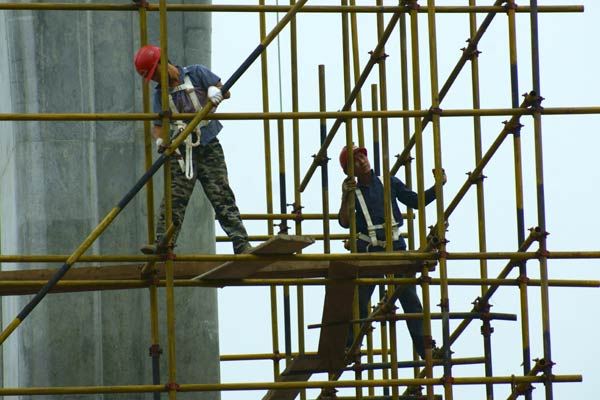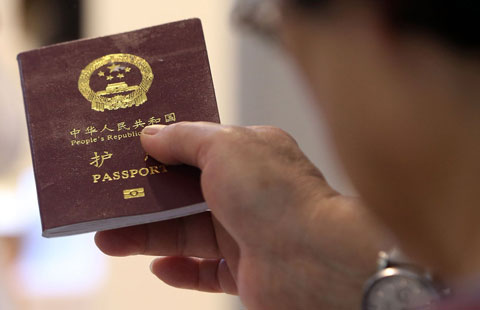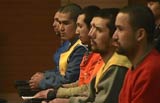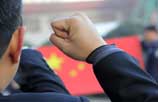Reform of central SOEs to speed up
Updated: 2014-12-11 08:22
By ZHONG NAN/ZHENG YANGPENG(China Daily)
|
||||||||
 |
|
Workers at a construction site in Yichang, Hubei province. To build a balanced economic development structure, the central government is encouraging more private companies to take on infrastructure projects. ZHOU JIANPING/CHINA DAILY |
The nation will accelerate the reform of its gigantic central State-owned enterprises so they can expand globally, modernize their management and become more innovative, said a senior official on Wednesday.
Yan Xiaofeng, secretary-general of the State-owned Assets Supervision and Administration Commission, said the agency is drafting a major reform plan, which will be announced by the State Council (cabinet) early next year.
Similar reforms have already started at many SOEs in provincial-level areas.
Since the 2013 Central Economic Work Conference vowed to pursue reform and innovation in economic and social development, change at the central SOEs has become a key task for the national government.
These reforms will ensure quality and efficiency in economic growth, stimulate markets and accelerate the economic structural adjustment. They will also improve SOEs' performance and services and help them "go global".
"As the Chinese economy has entered a 'new normal' stage, SOEs must realize that it is time to upgrade their industrial structures and rely more on the Internet and automation to strengthen their export ability," Yan said.
The total asset value of central and local SOEs is about $16.33 trillion.
To build a balanced economic development structure, the central government is encouraging more private companies to venture into telecommunications, energy and transportation infrastructure projects through the public-private partnership model.
Yan said the reform plan for the SOEs will put a higher priority on containing the spread of corruption at central SOEs.
SOE executives will be held responsible and severely penalized if their dereliction of duty leads to corruption and they fail to stop, investigate and report major incidents of corruption.
Li Yining, a renowned economist and professor at Peking University, said the government should introduce professional management into central SOEs, in particular in the competitive industries.
That practice should replace the appointment of officials from certain administrative levels to be the leaders of major State enterprises.
The shift will demolish the internal barriers that block progress in efficiency and fairness, Li said.
"As the government is welcoming private investors to participate in SOEs' stockholding reforms, the mixed-ownership model, transparent management and fair competition can be made possible. That will give consumers free choice ... and better services," said Li.
Conference on economy
The Central Economic Work Conference, which opened on Tuesday in Beijing, is expected to review the country's economic progress in 2014 and draw up plans for 2015 based on the "new normal" situation.
Who attends the meeting?
The meeting draws top leaders from the Central Committee of the Communist Party of China, the State Council (Cabinet), the National People's Congress (the top legislature), the Chinese People's Political Consultative Conference (the top policy advisory body), provincial governments, the People's Liberation Army and central State-owned enterprises.
How is the meeting structured?
The meeting discusses the GDP growth target for the coming year, which is reviewed and finalized during next year's National People's Congress. The target will not be revealed until the NPC concludes.
Although this year's economic conference lasts for only three days, preparations for it began in July or August. The Central Leading Group on Financial and Economic Affairs prepares for President Xi Jinping's speech, based on information collected at the local level.
What happens after the meeting?
Each ministry holds a meeting after the economic conference to set next year's work agenda. The internal discussions held during the conference are formulated into documents that are delivered to the top leaders for reference. These in turn form the basis for the Government Work Report, which will be delivered during the NPC session next year.

 Chinese passport opens more doors in 2014
Chinese passport opens more doors in 2014
 China faces: Glimpses of life and love
China faces: Glimpses of life and love
 Top 10 favorite gift brands of rich Chinese women
Top 10 favorite gift brands of rich Chinese women
 In photos: Group watching
In photos: Group watching
 Pictures of the year: Fashion
Pictures of the year: Fashion
 Across Canada Dec 10
Across Canada Dec 10
 Jack Ma in running for Time magazine Person of Year
Jack Ma in running for Time magazine Person of Year
 China: New climate change fund 'market-based'
China: New climate change fund 'market-based'
Most Viewed
Editor's Picks

|

|

|

|

|

|
Today's Top News
Xi chosen as 'Person of the Year' in Russia
Hypersonic tests target no specific country
Vermont, California, NYC tap into EB-5 program for money
Massacre survivors, relatives urge Japan to reflect in letter to UN
Facebook may need a partner to get into China
BOC adds to China's portfolio of NY property
Watchdog goes online to fight graft
China Construction Bank Toronto Branch Grand Opening Ceremony
US Weekly

|

|







